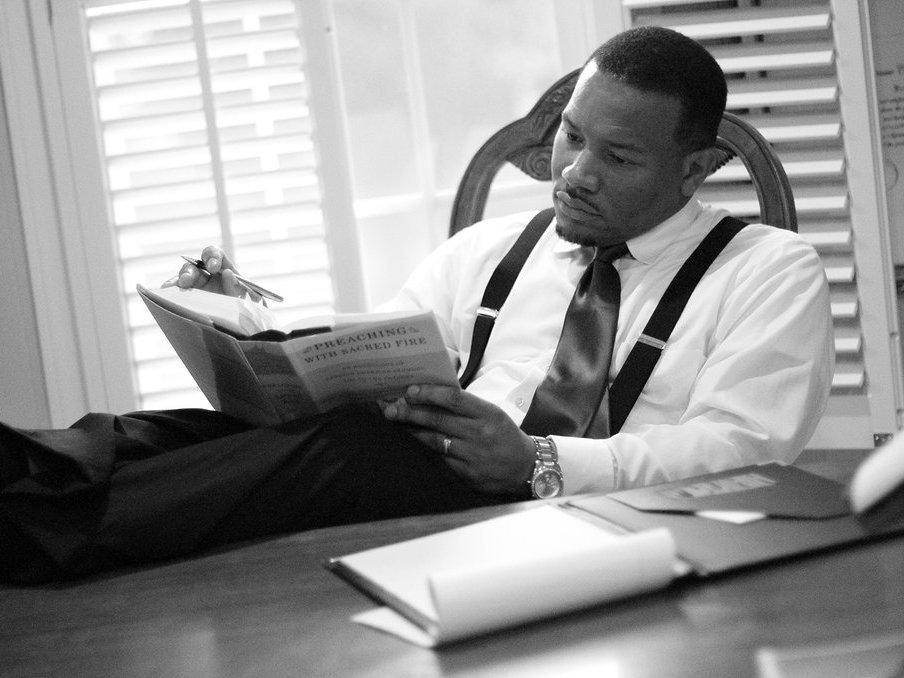
Section Branding
Header Content
NAACP's Young New Leader Fighting Same Old Battles
Primary Content

Georgia’s chapter of the NAACP has a new elected leader for the first time in eight years. Civil rights attorney and pastor Francys Johnson takes over as president after a statewide conference last month.
Johnson is 34, which means he grew up in a post-segregation society. But he said the organization is still fighting some of the same battles of his predecessors.
“At the heart of the NAACP’s work is voting rights and access to the ballot,” Johnson said. “The [U.S.] Supreme Court’s decision eviscerating Section 4 of the Voting Rights Act has brought front and center the critical issues the Georgia NAACP has been working on over the last 10 years, particularly as [state] legislators have tried to encroach on access to the ballot through voter ID measures, through restrictions to early voting, eliminating poll places [and] continuing to fight for at-large districts.”
Johnson said that last issue--of particular importance in county- and municipal-level races--prevents minority voters from electing the representative of their choosing.
“Obviously the minority groups would not be able to poll at majority strengths and elect at-large candidates,” he said. That results in no minority representation on governing bodies, even when minorities make up a significant portion of the population.
Not that a candidate has to be black or Latino or another minority to represent those interests, Johnson said. He pointed to U.S. Rep. John Barrow (D-Augusta), who has moved twice after state lawmakers redrew his district’s boundaries and he found himself outside those lines.
“Each time, in every reconfiguration, Mr. Barrow’s been sent back to Congress,” Johnson said. “So you have someone who is not a minority—Mr. Barrow is a white American—but he is the candidate of the people’s choice from that district.”
Johnson is also concerned about “stand-your-ground” laws, the self-defense statutes that allow an individual to use deadly force when they are in fear of their lives without trying to escape the situation.
Traditionally, people have able to use that force in their homes (and in some places, in their cars), but Johnson said allowing people to stand their ground no matter where they are goes too far.
“Going back to traditional notions of self-defense that have effectively been a part of jurisprudence since the beginning of human conflict would probably be a good start,” he said.
“This hyper-charged atmosphere where the right to bear arms is confused with the duty to tote and shoot first has certainly exasperated the issue,” Johnson said. “I don’t think it’s ‘stand your ground’ alone. It’s ‘stand your ground’ introduced to this hyper sense of what the Second Amendment gives one the right to do.”
Johnson will serve as president of the Georgia NAACP for two years, replacing eight-year president Edward DuBose. He said he will also be trying to replace some outdated ideas about the organization.
“We need people of good will of every hue—from cinnamon to chocolate to vanilla—to focus on finishing the work of the civil rights movement. The struggle is simply not over,” he said, noting many younger people who benefited from the civil rights reforms think that it is.
Johnson said he also doesn’t want people to believe the NAACP fights for black people at the expense of everyone else.
“Having school systems that graduate students of all hues helps every Georgian,” he said. “Having a healthcare system that treats the needs of all Georgians under the Affordable Care Act helps all Georgians. Getting our criminal justice system in order [so] it doesn’t matter whether you’re arrested in 30314, Atlanta, or 30458, Statesboro, in terms of what sentence you’re going to receive, that helps all Georgians. Our issues are really about moving Georgia forward.”
Tags: NAACP, Voting Rights Act, Voting Rights, Edward Dubose, Georgia State Conference NAACP, minorities, at-large voting districts, stand your ground law, self-defense law, francys johnson
Bottom Content

